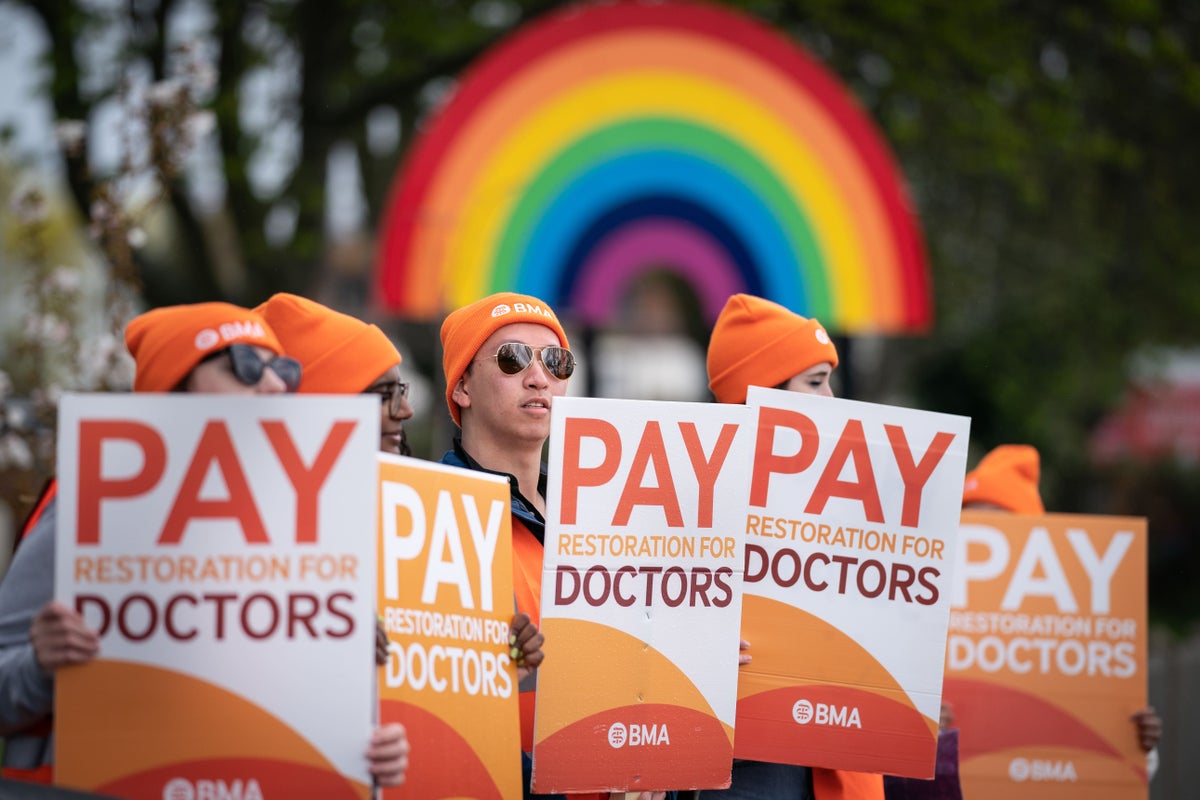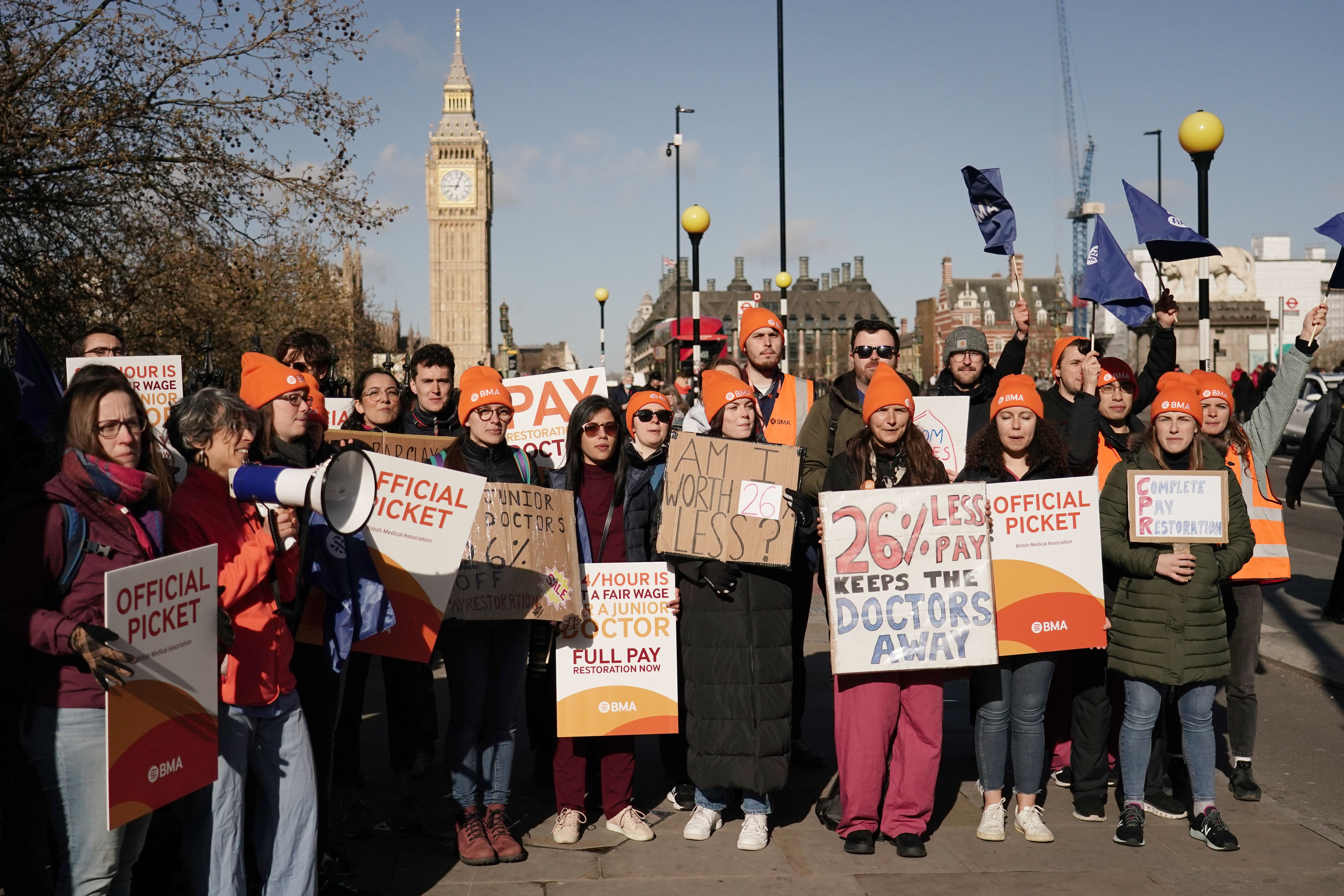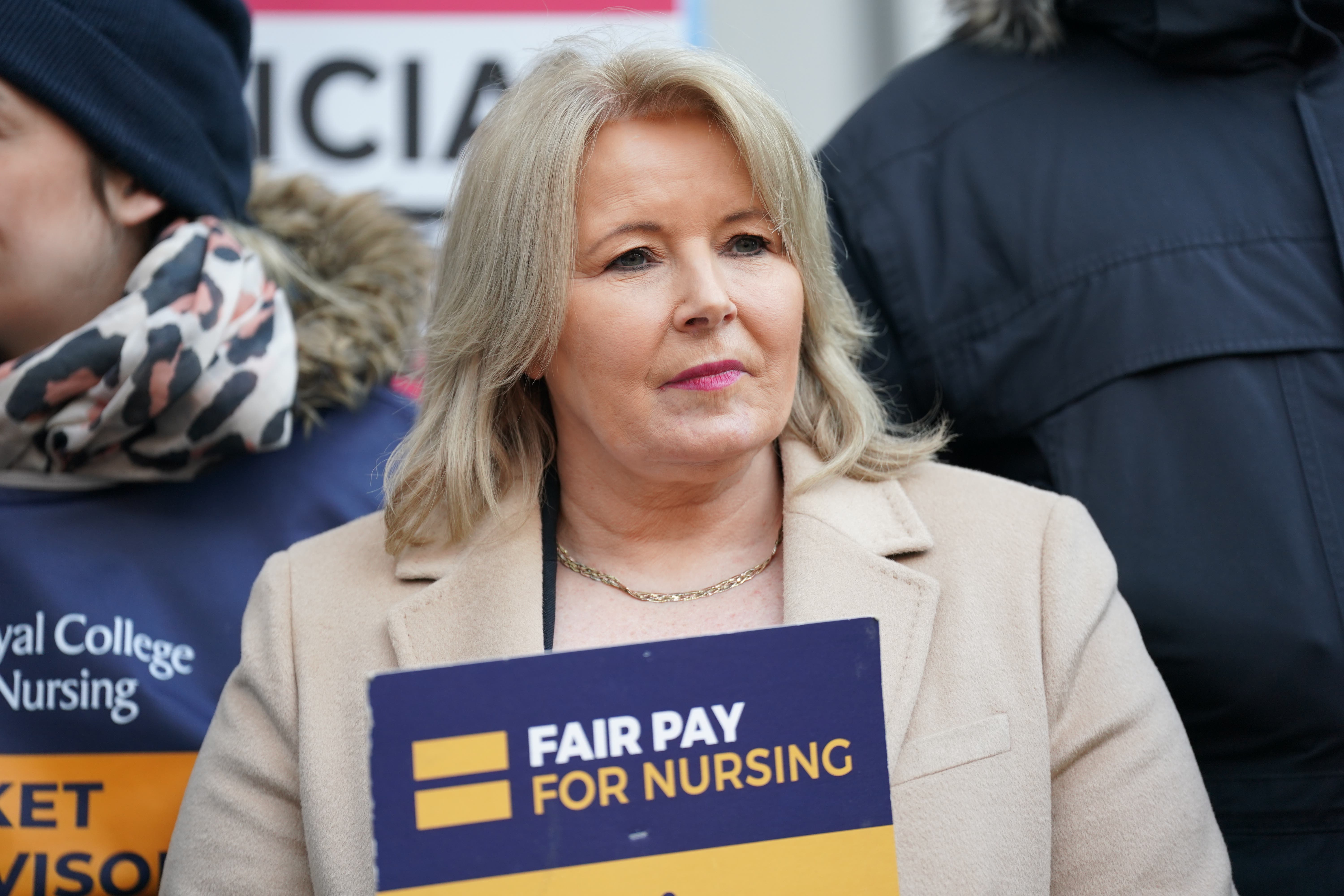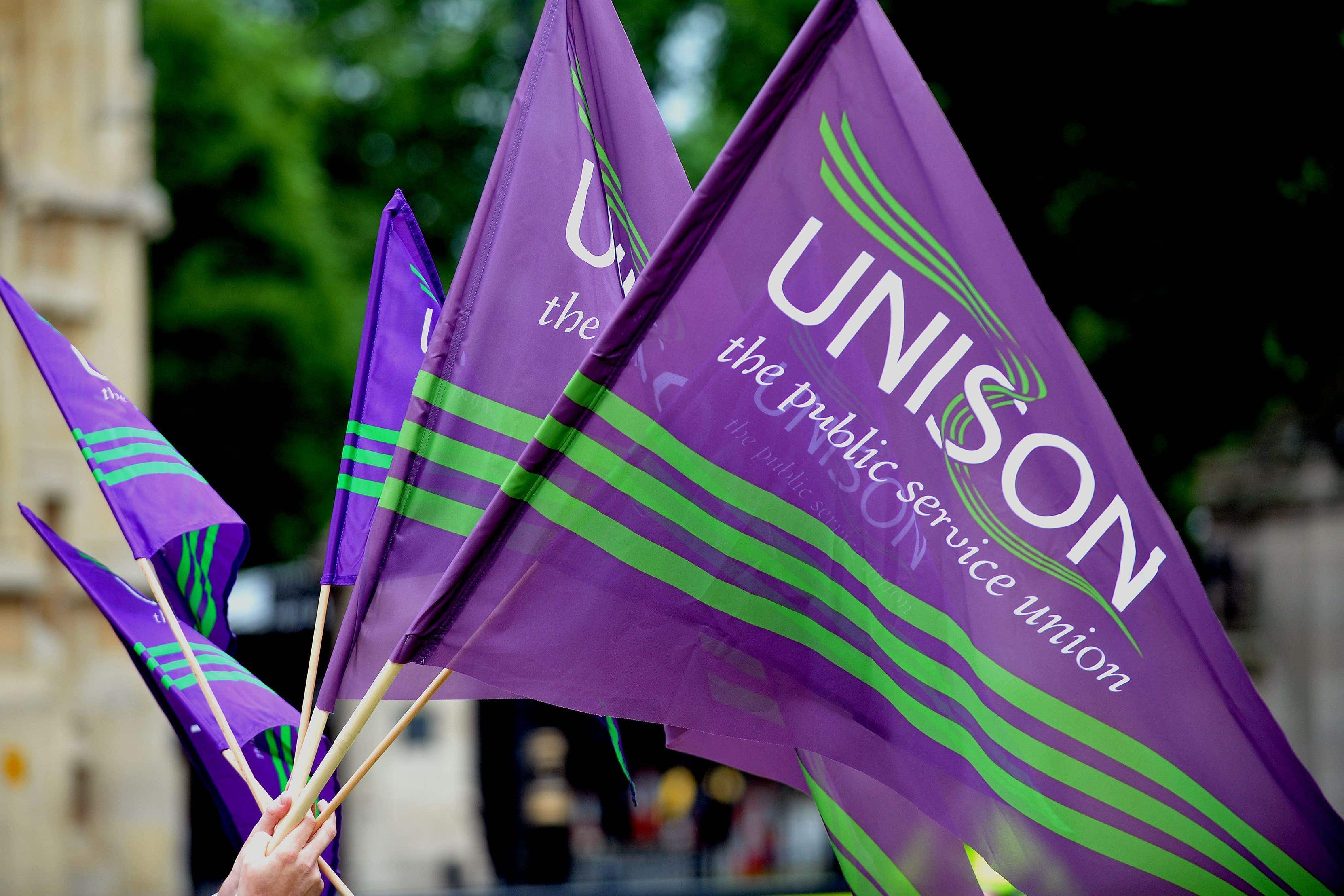
An all-out nurses’ strike over the May bank holiday will present “serious risks and challenges” to the NHS, a health leader has warned.
Sir Julian Hartley, chief executive of NHS Providers, said the “unprecedented” strike action – which will involve staff in emergency departments, intensive care units and cancer care for the first time – was “extremely worrying”.
He also said the threat of coordinated industrial action with junior doctors could result in the “most difficult challenge” for the NHS to date.
The 48-hour strike was announced on Friday after the majority of Royal College of Nursing (RCN) members went against the union recommendation and rejected the government’s pay offer.
Sir Julian told BBC Breakfast: “If this takes place in the way that it’s been described, then it would be the first time that we’ve seen nurses not working in those key areas, which of course would present serious risks and challenges for trusts to manage and mitigate that.”
He said the impact of the four-day junior doctors’ strike, which finished on Saturday morning, had been somewhat mitigated by consultants and other staff covering the shifts. But he said those set to be involved in the nursing strike represents a “significant proportion of the workforce”.
“The impact of strikes is enormous. It will mean more cancellations, and we’ve already seen a huge number... postponed as a result of industrial action,” he said.
“So the prospect of another nursing strike at the end of the month is extremely worrying.”

Nurses will strike for 48 hours from 8pm on 30 April. Patricia Marquis, the RCN’s England director, said on Friday that the union was in conversation with the British Medical Association “to understand how we can both work in a coordinated way”.
Around 47,000 junior doctors finished their 96-hour strike in a separate dispute over pay at 7am on Saturday.
Dr Vivek Trivedi, co-chair of the BMA junior doctors committee, refused to rule out joint action, telling the BBC: “We will consider all options available to us.”
Asked about any potential joint action, Sir Julian told BBC Radio 4’s Today show: “Obviously the prospect of both groups being out at the same time would present enormous challenges to the service and that would be really, really the most difficult challenge I think we’ve faced yet, if we were to have to deal with that scenario.”
The deal rejected by the RCN included a one-off payment of at least £1,665 and a 5 per cent salary increase next year.
In the letter to health secretary Steve Barclay, RCN general secretary Pat Cullen warned that the government’s existing pay offer was “simply not enough”. She said: “After a historic vote to strike, our members expect a historic pay award.”

Nick Hulme, chief executive of Ipswich and Colchester hospitals, told Radio 4 the latest round of nurses’ strikes will “significantly increase the risk to patients”, adding cancer patients will face greater risks as care could be delayed.
He said: “If there is a delay to cancer care, some delays won’t cause significant effects, but there are many people who have been waiting far too long for care and this will only exacerbate that risk.
“People are tired, there has been a huge amount of goodwill, there is always a lot of goodwill relied upon when delivering health care and that has been stretched during the industrial action previously from the nurses and now from the junior doctors.”
On the risk of strike action being coordinated by doctors and nurses, he said it could “cause a risk I can’t quite comprehend”.
The RCN escalation followed a 54 per cent vote to reject the offer. The turnout among RCN members employed on NHS Agenda for Change contracts in England was 61 per cent.
The move followed an earlier announcement by Unison that its NHS members had accepted the same offer by 74 per cent on a turnout of 53 per cent.
Unison’s head of health, Sarah Gorton, said the vote did not solve the “staffing emergency” in the NHS.

Ministers say healthcare workers’ demands are not affordable. Nurses had previously asked for a 15 per cent rise to exceed inflation – a move they said would stop their real pay from being eroded and also help with the NHS recruitment and retention crisis.
The government said the escalation of strike action was “hugely disappointing” and “concerning for patients”.
A government spokesperson said: “It is hugely disappointing that the Royal College of Nursing membership has rejected the pay deal recommended by their leadership.
“Following constructive discussions, all parties agreed this was a fair and generous offer – which is demonstrated by Unison, representing the largest share of the NHS workforce, choosing to accept it.
“The fact that the Royal College of Nursing has announced an escalation in strike action with no derogations, based on a vote from the minority of the nursing workforce, will be hugely concerning for patients.
“Hundreds of thousands of Agenda for Change staff continue to vote in ballots for other unions over the next two weeks and we hope this generous offer secures their support.”







